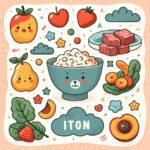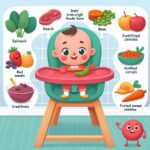Understanding how to prevent iron deficiency in pregnancy is crucial for the health of both the expecting mother and the developing fetus. Iron deficiency can lead to anemia, which might cause fatigue, weakness, and in severe cases, complications during pregnancy and delivery. This article delves deep into strategies to prevent iron deficiency, ensuring a healthier pregnancy journey.
Understanding Iron’s Role in Pregnancy
Iron is a pivotal mineral that plays a vital role in the body, especially during pregnancy. It helps in producing hemoglobin, a protein in red blood cells that carries oxygen to the body’s tissues. During pregnancy, the body’s blood volume increases up to 50%, escalating the need for iron. Without adequate iron, the risk of iron deficiency anemia rises, potentially leading to preterm delivery and low birth weight among other complications.
According to the World Health Organization, pregnant women should intake at least 27mg of iron daily. However, achieving this through diet alone can be challenging, making it essential to consider fortified foods and supplements as viable options for meeting these needs.
How to Prevent Iron Deficiency in Pregnancy?
Preventing iron deficiency in pregnancy involves a multifaceted approach that includes dietary changes, supplementation, and regular monitoring of iron levels. Incorporating iron-rich foods into the diet is a primary step. Foods high in iron include lean meats, poultry, fish, lentils, beans, and fortified cereals. Vitamin C-rich foods, such as oranges, strawberries, and bell peppers, can enhance iron absorption when consumed with iron-rich foods.
Iron supplements are often recommended during pregnancy, especially if the dietary intake is insufficient or the individual has a history of iron deficiency anemia. It’s crucial to consult with a healthcare provider before starting any supplement regimen to ensure the correct dosage and to monitor for any potential side effects. Learn more about iron supplementation during pregnancy here.
Nutritional Strategies for Boosting Iron Absorption
In addition to consuming iron-rich foods, understanding how to optimize iron absorption is vital. Consuming vitamin C alongside iron-rich foods can significantly enhance absorption. Conversely, certain substances like caffeine and calcium can inhibit iron absorption if consumed in large amounts or close to iron-rich meals. Planning meals to maximize iron absorption can play a key role in preventing iron deficiency during pregnancy.
Another strategy is to cook with cast iron cookware, which can increase the iron content of the food cooked in it. This simple change in cookware can make a noticeable difference in iron intake without requiring a major dietary overhaul.
Monitoring and Managing Iron Levels During Pregnancy
Regular monitoring of iron levels through blood tests is essential during pregnancy. These tests can help identify iron deficiency early, allowing for timely intervention. Healthcare providers can offer guidance on managing iron levels effectively, including adjusting dietary habits and supplement intake.
For those diagnosed with iron deficiency anemia, the healthcare provider may prescribe higher doses of iron supplements. In some cases, intravenous (IV) iron may be necessary. It’s important to follow the healthcare provider’s recommendations closely and attend all follow-up appointments to ensure the health of both the mother and the baby.
Conclusion
Preventing iron deficiency in pregnancy is vital for the health and well-being of both the mother and the developing fetus. By understanding the importance of iron, incorporating nutritional strategies, and closely monitoring iron levels, expecting mothers can significantly reduce the risk of iron deficiency anemia. Remember, always consult with a healthcare provider before making any significant changes to your diet or supplement regimen.
For more information on pregnancy and prenatal care, explore our wide range of topics, including pregnancy nutrition for vegetarians, the importance of folic acid in early pregnancy, and how vegan diets can support a healthy pregnancy.













